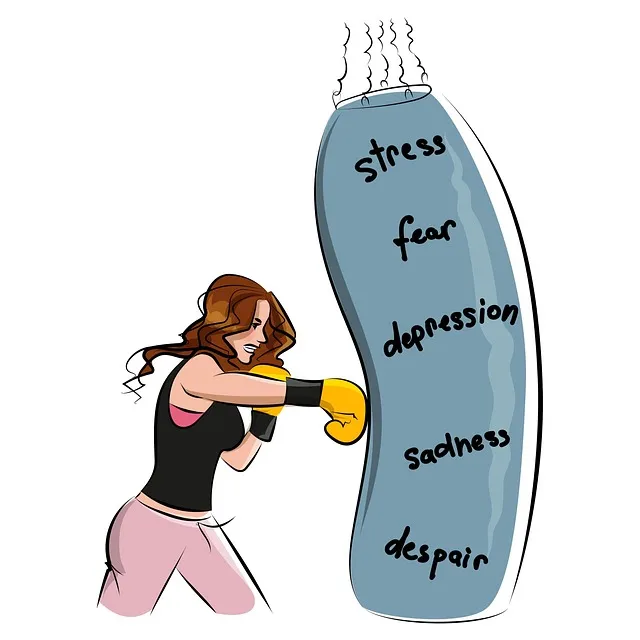Parker Kaiser Permanente addresses healthcare provider burnout with a multi-faceted approach, focusing on mental health support. They offer appointments, resources, and risk assessments for mental health professionals, fostering a culture that values self-care and well-being. Their innovative services include phone consultations and Mental Illness Stigma Reduction initiatives, aiming to reduce stigma and promote resilience. By providing easy access to mental health appointment phone numbers and promoting strategies like depression prevention, exercise, and mindfulness, they empower healthcare workers to maintain work-life balance and prevent burnout. Parker Kaiser Permanente's community-oriented approach, including team-building and mentorship programs, builds resilient teams capable of navigating challenges.
Healthcare provider burnout is a growing concern, impacting patient care and organizational success. This article explores effective prevention strategies, drawing insights from innovative models like Parker Kaiser Permanente’s approach to mental health support. We delve into the causes and consequences of burnout, offering practical solutions for healthcare workers. Key topics include self-care, work-life balance, team resilience, and leveraging resources like the mental health appointment phone number at Parker Kaiser Permanente.
- Understanding Healthcare Provider Burnout: Causes and Impact
- Parker Kaiser Permanente's Approach to Mental Health Support
- Effective Strategies for Preventing Burnout in Healthcare Workers
- The Role of Self-Care and Work-Life Balance
- Building Resilient Teams: A Holistic Approach to Burnout Prevention
Understanding Healthcare Provider Burnout: Causes and Impact

Healthcare provider burnout is a growing concern within the industry, impacting not only individual practitioners but also patient care and organizational performance. Burnout refers to a state of emotional exhaustion, depersonalization, and reduced personal accomplishment, often resulting from prolonged exposure to stressful work environments. For healthcare professionals, this can stem from heavy workload, long hours, high-pressure decisions, and the emotional toll of caring for patients in distress.
At Parker Kaiser Permanente, recognizing these challenges is crucial. Mental health appointments are a vital resource, offering opportunities for professionals to address their well-being. Through initiatives like Stress Management Workshops Organization, they promote self-care practices and provide platforms for colleagues to connect and support one another. Additionally, the risk assessment for mental health professionals plays a key role in identifying burnout risks early, ensuring timely interventions and support mechanisms, such as access to counseling services or adjustments in work schedules.
Parker Kaiser Permanente's Approach to Mental Health Support

Parker Kaiser Permanente has pioneered innovative approaches to mental health support, recognizing that emotional well-being is a cornerstone of overall healthcare. They offer a comprehensive suite of services designed to cater to various aspects of mental health and stress management. Through phone-based consultations, individuals can access expert advice and guidance without the need for an in-person visit, making it convenient for those seeking support from the comfort of their homes. This approach is especially beneficial for busy professionals who may not have time for traditional appointments.
The organization’s commitment to Emotional Well-being Promotion Techniques extends beyond phone consultations. They actively engage in Mental Illness Stigma Reduction Efforts, fostering a supportive environment where individuals feel comfortable discussing their mental health challenges openly. By integrating these strategies, Parker Kaiser Permanente aims to create a holistic system that not only treats mental illness but also promotes resilience and overall mental wellness among its members.
Effective Strategies for Preventing Burnout in Healthcare Workers

Healthcare worker burnout is a growing concern, but there are effective strategies to prevent it. One key approach is to prioritize resilience building. This involves equipping professionals with mental health tools and coping mechanisms tailored to their unique challenges. Many organizations, like Parker Kaiser Permanente, offer resources such as mental health appointment phone numbers, ensuring easy access to support when needed.
Additionally, integrating depression prevention initiatives into workplace culture can be life-saving. Regular check-ins, peer support programs, and encouraging open conversations about mental wellness are essential. Even a simple mental wellness podcast series production can provide valuable insights, promoting self-care practices and fostering a supportive environment. These proactive measures contribute to the overall well-being of healthcare workers, preventing burnout and enhancing their ability to deliver quality patient care.
The Role of Self-Care and Work-Life Balance

Maintaining a healthy work-life balance is essential for healthcare providers to prevent burnout and promote long-term mental wellness. Self-care should be prioritized, encompassing both physical and mental well-being. This includes regular exercise, adequate sleep, and structured relaxation techniques like meditation or mindfulness practices. By incorporating self-care routines into daily schedules, professionals can reduce stress levels and improve their ability to cope with demanding work environments.
At organizations like Parker Kaiser Permanente, mental health support is accessible through appointments with counselors and therapists who offer valuable resources for risk management planning. Additionally, engaging in self-awareness exercises and exploring mental wellness coaching programs can further enhance resilience. These strategies collectively contribute to a holistic approach to burnout prevention, ensuring healthcare providers maintain optimal mental health while delivering quality patient care.
Building Resilient Teams: A Holistic Approach to Burnout Prevention

Building resilient teams is a holistic approach to burnout prevention that goes beyond individual interventions. It involves fostering a supportive and collaborative environment where healthcare providers can connect and learn from one another. At Parker Kaiser Permanente, for instance, mental health appointment phone numbers are readily available, encouraging staff to prioritize their well-being. This culture of open communication facilitates the sharing of experiences, strategies, and resources, creating a safety net that supports resilience.
Through team-building activities, regular check-ins, and mentorship programs, organizations can cultivate a sense of belonging and shared purpose. Mental wellness coaching programs development should be integrated into this framework to provide personalized guidance and coping mechanisms. Effective communication strategies, such as active listening and constructive feedback, further strengthen the bonds within teams, enhancing their ability to navigate challenges collectively.
Healthcare provider burnout is a pressing issue, but with the right strategies, it can be effectively prevented. As highlighted by Parker Kaiser Permanente’s commitment to mental health support, organizations can foster resilient teams through holistic approaches. By prioritizing self-care and work-life balance, along with implementing evidence-based strategies, healthcare workers can find sustenance in their roles. Encouraging open conversations about mental health and providing accessible resources, such as the Parker Kaiser Permanente mental health appointment phone number, are crucial steps towards creating a healthier, more supportive work environment. Together, these measures can mitigate burnout and enhance the overall well-being of healthcare providers.






